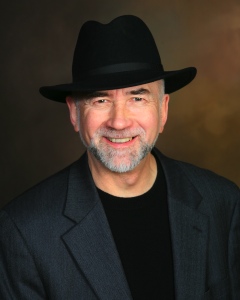This article was originally published on December 30, 2012 in the Dead River Journal (Seeking Sustainable Growth in the Wake of Sandy)
 The Center for Regenerative Community Solutions and Regenerative Community Ventures, Inc. have recently circulated a position paper on “Laying a Foundation for Sustainable Growth in New Jersey in the Wake of Hurricane Sandy” with policy makers and community leaders in the state. Here is a final version, and several excerpts. The authors are co-founders of the Center for Leadership in Sustainability, the Sustainable Leadership Forum, and Acumen Technology Group, LLC. Jonathan Cloud is Senior Fellow, Institute for Sustainable Enterprise, Fairleigh Dickinson University and Managing Partner, Acumen Technology Group, LLC. Victoria Zelin is Principal, Regenerative Community Ventures, Inc., a licensee of Unified Field Corporation.
The Center for Regenerative Community Solutions and Regenerative Community Ventures, Inc. have recently circulated a position paper on “Laying a Foundation for Sustainable Growth in New Jersey in the Wake of Hurricane Sandy” with policy makers and community leaders in the state. Here is a final version, and several excerpts. The authors are co-founders of the Center for Leadership in Sustainability, the Sustainable Leadership Forum, and Acumen Technology Group, LLC. Jonathan Cloud is Senior Fellow, Institute for Sustainable Enterprise, Fairleigh Dickinson University and Managing Partner, Acumen Technology Group, LLC. Victoria Zelin is Principal, Regenerative Community Ventures, Inc., a licensee of Unified Field Corporation.
Superstorm Sandy has dramatically altered NJ’s economy as well as its geography for years to come. While there may be a short-?term “bounce” from the money spent on reconstruction, the thinking about how that rebuilding should be carried out is already moving very quickly toward the view that it needs to be substantially more hurricane-? proof and disaster-?resistant, more resilient, and — in a word — more sustainable.
This paper sets out some considerations and recommendations for creating a foundation for sustainable growth in New Jersey, describes some of the initiatives we are taking through our new nonprofit organization, the Center for Regenerative Community Solutions, and makes specific suggestions for policies and programs for state and local government to support these and similar initiatives from other organizations.
Continue reading →
 Through our new nonprofit, the Center for Regenerative Community Solutions (CRCS), we have begun the work of rebuilding NJ’s shore communities in a more sustainable way. As part of the basis for this work, we’ve published the following article, originally posted January 12, 2013, and most recently revised February 11, 2012: RegeneratingNewJerseyShoreCommunitiesJan2013r
Through our new nonprofit, the Center for Regenerative Community Solutions (CRCS), we have begun the work of rebuilding NJ’s shore communities in a more sustainable way. As part of the basis for this work, we’ve published the following article, originally posted January 12, 2013, and most recently revised February 11, 2012: RegeneratingNewJerseyShoreCommunitiesJan2013r

